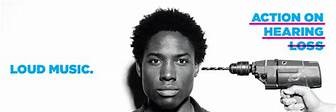Treatment of ischemic heart disease involves a multifaceted approach, including lifestyle modifications, medications, and surgery in some cases. It is important to consult a doctor for a personalised treatment approach.
Home Remedies
Although home remedies are not treatment for ischemic heart disease, they are beneficial to some extent in preventing this condition. It is important to understand that home remedies should only be taken as a complement to the medical treatment advised by the doctor.
Switch to a heart-healthy diet rich in whole grains, fruits, vegetables, and lean proteins. Avoid saturated fats, trans fats, and processed foods.
Include foods rich in omega-3 fatty acids, such as walnuts, flaxseed, and fatty fish, as they help reduce inflammation and help keep the heart and blood vessels healthy.
Exercise regularly. Aim for 150 minutes of moderate-intensity exercise per week, as recommended by the American Heart Association (AHA).
Manage stress by meditation, yoga, or indulging in any activities that you enjoy.
Ayurvedic Treatment
The first step in dealing with high blood pressure is to avoid things that can cause it. Ayurveda, a traditional health system, focuses on preventing high blood pressure and staying healthy. Instead of using medicines, Ayurveda suggests eating the right foods and making lifestyle changes to control high blood pressure. Some natural remedies mentioned in Ayurveda are:
Bhringraja: This herb can help control high blood pressure. Mix two teaspoons of bhringraj leaf juice with one teaspoon of honey and take it twice daily to keep your blood pressure normal.
Brahmi: It has been found to lower blood pressure when taken by mouth.
Sarpagandha: Rauwolfia Serpentina, also known as Sarpagandha, is very helpful for managing high blood pressure. Using powdered roots can help reduce blood pressure.
Surgery
Surgery may be required in cases of ischemic heart disease where lifestyle modifications and medicines cannot manage the condition. The two most common surgical interventions used for treatment of IHD are:
Coronary angioplasty: This is a minimally invasive procedure in which the blocked coronary arteries are reopened using a catheter with a balloon. A stent may also be placed inside the artery to help it stay open.
Coronary Artery Bypass Graft: This procedure involves bypassing the blocked portion of the coronary arteries with blood vessels taken from elsewhere in the body. This restores blood flow to the heart. The treatment plan and selection of procedures depend upon the patient’s specific health condition and the opinion of the physician.
Cost of Ischemic Heart Disease Treatment
Treatment of ischemic heart disease using medicines may cost around ₹1500 to ₹2000 per month. Medications are often enough to manage ischemic heart disease; however, surgery might be required in the more severe cases.
Procedure | Cost |
Coronary Angioplasty | ₹ 50,000 - ₹ 2,50,000 |
CABG | ₹ 1,40,000 - ₹ 3,50,000 |
Prognosis and Survival Rate for Ischemic Heart Disease
The prognosis for individuals with ischemic heart disease varies based on several factors such as age, medical and family history, symptoms, and risk factors. With timely diagnosis, appropriate treatment, and healthy lifestyle modifications, the progression of ischemic heart disease can be slowed down significantly, and the patients can live a long and productive life.
Disclaimer: The prognosis and survival rate of ischemic heart disease varies from person to person.



























